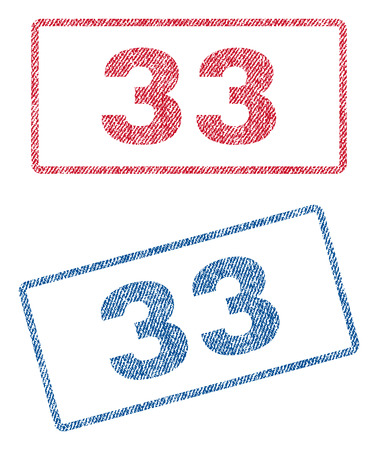Introduction to Numerology in British Culture
Numerology, the study of the mystical significance of numbers and their influence on human life, has woven itself into the fabric of British society in ways both subtle and profound. While its origins trace back to ancient civilisations such as Babylon, Greece, and Egypt, numerology found fertile ground in Britain, evolving alongside the nation’s unique cultural and historical landscape. During the Middle Ages, with the rise of esoteric traditions and scholarly interest in the occult, numerological concepts were often discussed among intellectual circles and even referenced in literature by luminaries like Shakespeare. Moving into the Victorian era, fascination with spiritualism rekindled popular interest in numbers as bearers of fate and character. In contemporary Britain, numerology occupies a curious position: it is both embraced by those seeking personal insight—often consulted for naming children or making romantic decisions—and met with scepticism by a scientifically-minded public. Nevertheless, whether regarded as superstition or self-discovery tool, numerology remains an intriguing part of British popular culture, offering a lens through which individuals explore identity, destiny, and relationships.
2. Understanding the Power of Names
Names hold a unique place in British culture, reflecting centuries of tradition, class distinctions, and familial heritage. The significance of a name goes far beyond mere identification; it can subtly influence perceptions, relationships, and even personal destiny. In this section, we examine how names are chosen in Britain and the perceived impact they have on one’s identity and future.
The British Approach to Naming
In the UK, naming customs often reflect a blend of family tradition, religious influence, and societal trends. Many parents consider the following factors when selecting a name for their child:
- Family Legacy: Honour grandparents or ancestors by passing down names through generations.
- Royal Associations: Choose names connected to British royalty (e.g., George, Charlotte) to evoke tradition and prestige.
- Meaning & Origin: Select names with positive meanings or historical roots, often derived from Latin, Greek, Celtic, or biblical origins.
- Popularity Trends: Consider contemporary trends while balancing uniqueness and social acceptance.
The Perceived Influence of Names on Identity and Destiny
There is a longstanding belief within British society that names carry inherent power, shaping how individuals are perceived by others and even affecting life outcomes. This perception is evident in areas such as education, employment, and social mobility. For example:
| Name Type | Typical Associations | Perceived Impact |
|---|---|---|
| Traditional (e.g., Elizabeth, William) | Respected, stable, upper-class | Easier access to elite circles; assumption of reliability |
| Unique/Modern (e.g., Harper, Jaxon) | Creative, individualistic | Might face stereotypes but also stand out positively in creative industries |
| Cultural/Heritage (e.g., Siân, Hamza) | Diverse backgrounds; strong cultural ties | Pride in heritage; potential challenges with integration or bias |
The Role of Numerology in Name Selection
Naming in Britain sometimes intersects with numerological beliefs—an area where ancient traditions persist beneath modern rationality. Numerologists assign numerical values to letters in names using systems such as the Pythagorean method. Some British families consult numerology experts to ensure their child’s name aligns with favourable numbers believed to attract luck or harmonious relationships.
Cultural Case Study: The Joneses and Social Mobility
The surname “Jones,” common in Wales and parts of England, illustrates how a name can shape expectations. While some see it as a symbol of humble origins, others embrace its widespread familiarity as an asset for blending into various social settings—demonstrating how context and perception intertwine with naming conventions in Britain.

3. Numerology and Romantic Compatibility
Within the framework of British dating culture, numerology has emerged as an intriguing tool for evaluating romantic compatibility. While traditionally seen as a mystical or esoteric practice, numerology is increasingly woven into contemporary British relationship narratives, blending age-old beliefs with modern sensibilities.
The Logic Behind Numerological Compatibility
Numerology operates on the premise that names and birth dates hold inherent vibrational values, which can influence personal traits and interpersonal dynamics. When it comes to romance, these numerical interpretations are used to assess whether two individuals are likely to enjoy harmony or encounter friction. For example, many Britons interested in numerology will calculate their “Life Path Number” or “Destiny Number” from their full birth name and date of birth. These numbers are then compared between partners to identify areas of alignment or potential conflict.
Integration with British Dating Culture
In the UK, where tradition often meets innovation, numerological analysis is sometimes applied alongside more conventional dating practices. It’s not uncommon for those intrigued by spiritual or alternative lifestyles to consult numerological charts before embarking on a new relationship. Some even use numerology apps or online calculators tailored for British audiences, reflecting the country’s growing appetite for digital solutions in the realm of love and relationships.
Common Beliefs and Contemporary Practices
Among certain circles—particularly within urban areas like London, Manchester, and Edinburgh—there is a belief that numerology can help avoid mismatches and foster deeper understanding between couples. While not everyone takes these results as gospel, many see them as conversation starters or tools for self-reflection. Modern practices might include sharing Life Path Numbers on dating profiles or discussing compatibility readings during early dates. This integration demonstrates a uniquely British blend of curiosity, pragmatism, and openness to non-traditional ideas.
Overall, numerology’s role in assessing romantic compatibility in Britain reflects both enduring fascination with the mystical and a practical desire for insight into personal connections. By combining traditional numerological techniques with contemporary dating habits, many British singles and couples find new avenues to explore compatibility beyond surface-level attraction.
4. Case Study: Numerology in British Relationships
Numerology is not just a mystical pursuit—it has found real application among British couples and individuals seeking insight into their relationships. Through both personal stories and practical examples, we can observe how numerology is woven into modern British love lives.
Real-Life Example 1: The Smiths of Manchester
Emily and Thomas Smith, a couple from Manchester, turned to numerology during a rough patch in their engagement. By calculating their Life Path numbers, they discovered Emily was a 6 (the nurturer), while Thomas was a 1 (the leader). This difference had been causing friction—Thomas’s drive sometimes clashed with Emily’s desire for harmony. Guided by a local numerologist, they learned to appreciate each other’s strengths and consciously worked on balancing leadership with care. They now credit numerology for helping them understand one another beyond surface-level traits.
Real-Life Example 2: A Londoner’s Dating Decisions
Olivia, a single professional from London, uses the principles of numerology to guide her dating choices. She consults her Personal Year number to decide when to be more open to new relationships. For instance, in her “2” year—a period associated with partnership—she actively attended more social events and joined dating apps. Olivia also checks compatibility numbers before committing to a second date, finding that this approach gives her an added sense of confidence in the notoriously competitive London dating scene.
Numerology Compatibility Table: A British Perspective
| Name | Location | Life Path Number | Partners Life Path | Main Insight/Outcome |
|---|---|---|---|---|
| Emily & Thomas Smith | Manchester | 6 | 1 | Learned mutual respect for differing approaches; improved communication |
| Olivia James | London | 5 | – | Became more strategic and self-aware in dating choices; increased relationship satisfaction |
| Sophie & Jack Williams | Bristol | 3 | 9 | Used name numerology to select a wedding date believed to bring harmony and joy |
Cultural Integration: Local Numerologists and Workshops
The UK has seen a rise in workshops and online forums where participants share their experiences using numerology in relationships. Local numerologists often tailor readings with references to British traditions, such as choosing auspicious dates for registry weddings or discussing how historic family names might influence romantic luck. This uniquely British blend of tradition and modern mysticism ensures numerology continues to resonate across generations.
5. Cultural Reflections: Attitudes and Skepticism
When exploring the intersection of numerology, names, and love within the British context, it is essential to consider the wide spectrum of cultural attitudes that exist across the UK. While some individuals embrace numerological ideas as an intriguing lens through which to interpret romantic relationships, others remain distinctly sceptical, often viewing such practices as pseudoscience or mere superstition. This diversity of opinion is shaped by historical, social, and regional influences within British society.
Endorsement Among Certain Communities
In some British communities—particularly among those with a keen interest in alternative spirituality or holistic wellbeing—numerology enjoys a modest but passionate following. These groups may incorporate numerological analysis into matchmaking, name selection for children, or even wedding planning. Such practices are sometimes seen as a way to foster deeper self-awareness or compatibility in relationships. Furthermore, younger generations interested in astrology and personality typologies often encounter numerology through online platforms and social media, where it is presented as both entertainment and a potential tool for self-discovery.
Scepticism and Rational Critique
Conversely, there remains a strong current of scepticism throughout much of British society. Influenced by the nation’s longstanding traditions of scientific inquiry and rational thought, many Britons are quick to challenge the validity of numerology. Mainstream media and academic circles typically dismiss numerological claims as lacking empirical support. For these critics, the idea that numbers or names can meaningfully shape romantic outcomes is seen as little more than coincidence or cognitive bias. Jokes about “mystic Meg” predictions at the pub reflect this light-hearted but firm incredulity.
Regional and Cultural Nuances
It is also worth noting that attitudes towards numerology vary regionally within the UK. In metropolitan areas like London or Manchester, where multiculturalism thrives, one might encounter a greater openness to diverse spiritual practices—including numerology—brought by immigrant communities or global trends. In contrast, rural regions or traditionally conservative parts of Britain may exhibit greater resistance to such ideas, favouring pragmatic approaches to relationships and identity.
The Ongoing Dialogue
This ongoing dialogue between endorsement and scepticism shapes how numerology is perceived in British discussions about love and relationships. Whether embraced as a meaningful tradition or dismissed with quintessentially British irony, numerology continues to provoke conversation—serving as both a mirror of cultural beliefs and a catalyst for debate about fate, free will, and personal connection.
6. Conclusion and Future Trends
The exploration of numerology, names, and love within the British context reveals a fascinating interplay between tradition, personal identity, and evolving relationship dynamics. As highlighted in our case studies, British couples often navigate the balance between modern sensibilities and longstanding cultural beliefs, particularly when it comes to naming conventions and the subtle influence of numerological compatibility. Key insights from this analysis suggest that while not universally embraced, numerology and name-based traditions continue to resonate—especially during major life events such as marriage or the birth of a child.
Looking ahead, the role of numerology and naming customs in British relationships is poised for further evolution. As society grows more diverse and open to global influences, we can anticipate a hybridisation of traditional practices with new-age interpretations. Digital matchmaking platforms may increasingly incorporate numerological algorithms or name-matching features, appealing to both curiosity and a desire for deeper connection. Meanwhile, younger generations are likely to approach these traditions with a blend of scepticism and playful experimentation, integrating them into personal narratives without feeling bound by rigid rules.
Ultimately, the enduring British fascination with names and numbers reflects broader questions about destiny, compatibility, and self-understanding in love. While trends will shift and adapt, the search for meaning in how we connect—and what our names might reveal—remains an intriguing part of Britain’s romantic landscape. The future promises continued innovation as individuals blend heritage with modernity in shaping their own stories of love.

